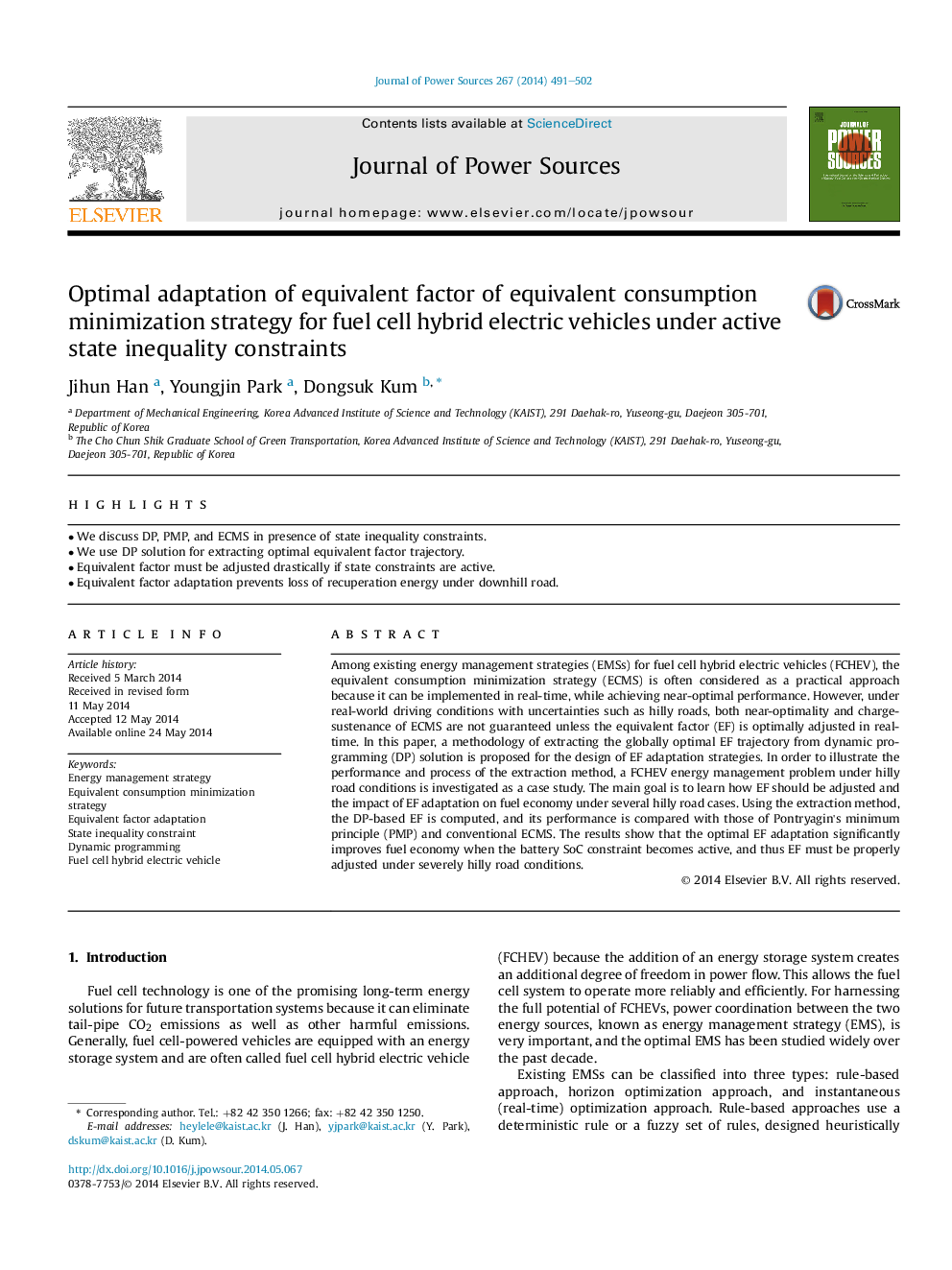| Article ID | Journal | Published Year | Pages | File Type |
|---|---|---|---|---|
| 1286604 | Journal of Power Sources | 2014 | 12 Pages |
•We discuss DP, PMP, and ECMS in presence of state inequality constraints.•We use DP solution for extracting optimal equivalent factor trajectory.•Equivalent factor must be adjusted drastically if state constraints are active.•Equivalent factor adaptation prevents loss of recuperation energy under downhill road.
Among existing energy management strategies (EMSs) for fuel cell hybrid electric vehicles (FCHEV), the equivalent consumption minimization strategy (ECMS) is often considered as a practical approach because it can be implemented in real-time, while achieving near-optimal performance. However, under real-world driving conditions with uncertainties such as hilly roads, both near-optimality and charge-sustenance of ECMS are not guaranteed unless the equivalent factor (EF) is optimally adjusted in real-time. In this paper, a methodology of extracting the globally optimal EF trajectory from dynamic programming (DP) solution is proposed for the design of EF adaptation strategies. In order to illustrate the performance and process of the extraction method, a FCHEV energy management problem under hilly road conditions is investigated as a case study. The main goal is to learn how EF should be adjusted and the impact of EF adaptation on fuel economy under several hilly road cases. Using the extraction method, the DP-based EF is computed, and its performance is compared with those of Pontryagin's minimum principle (PMP) and conventional ECMS. The results show that the optimal EF adaptation significantly improves fuel economy when the battery SoC constraint becomes active, and thus EF must be properly adjusted under severely hilly road conditions.
